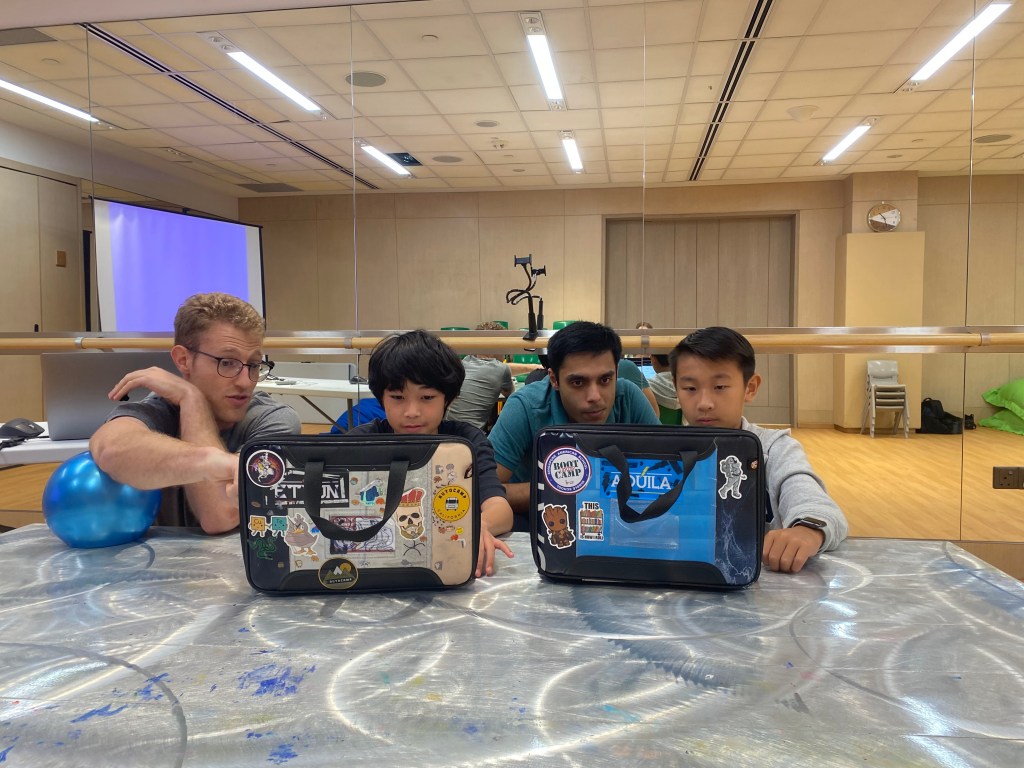Strive is an online learning platform that teaches kids to code, but it wants to do more than just that. Developed with an active learning model that lets students take the lead in classes, Strive wants to instill in them a lifelong love of STEM subjects.
The Singapore-based startup announced today that it has raised a $1.3 million seed round led by Y Combinator (it is an alum of the accelerator program), with participation from Soma Capital, Goodwater Capital and individual investors like Crimson Education CEO Jamie Beaton, co-founder of WestBridge Capital and founding member of Sequoia India KP Balaraja, and Segment co-founder and ex-CTO Calvin French-Owen.
Strive, which holds one-on-one classes for kids aged 8 to 16 years, plans to expand across Asia, targeting the 3.7 million students in international schools.
Founded in 2020 by Tamir Shklaz and Pulkit Agarwal, Strive was built on the idea that the development of AI automation and tech means everything you learn might be outdated in a few years.
“The most important skill we can give kids or anyone is learning how to be adaptable,” said Shklaz. “If you want to inspire adaptable students, learning should be fun. Learning should be joyful. So we really started Strive for the core intention of equipping kids to thrive in the 21st century by making them fall in love with the process of learning.”
What makes Strive different from the many other online coding learning platforms for kids? Shklaz said Strive’s goal is to create a learning experience that is more effective and engaging than its competitors.
“We have really incredible teachers, but we don’t hire teachers based off their technical ability,” he said. “Of course they need to be able to teach coding, but what’s far more important is their ability to empathize and relate with the student.”
Classes are “hyper-personalized” so students can chose the projects they want to work on — for example, they can code a game like Pong, a math stimulation or a physics simulation. Projects are visual and have instant feedback. Once a student solves a problem and completes a new line of code, they see the results immediately on their screen. “We’re using circles, colors and movement, and that’s what makes it really engaging for kids.”
Agarwal said even though more parents and educational systems are starting to emphasize coding, their teaching methods often leave kids feeling disengaged and frustrated. “Most of the time the students are still getting introduced to coding and then they get turned off from it. They reach the false conclusion that coding is too difficult, coding is dry or coding is just not for me.”
Active learning means that instead of lecturing students throughout a class, teachers ask them questions and guide them through coding exercises, letting them take the lead.
Agarwal gave me a short sample lesson, which was an interesting experience for me because I’ve never studied coding, so I’m starting at the same level of the kids they teach (or even lower, to be honest).
First Agarwal asked me if I was interested in learning averages. I said no, so he asked me if I wanted to draw art instead, which I did. He guided me through the steps of coding a gridded art sketchpad, but I was running the class, choosing what results I wanted, like making the background of the sketchpad my favorite color.
Instead of telling me what to do, Agarwal asked me to change a number, and then he asked what I thought that action resulted in (it moved a dot over to the corresponding number of the grid). By the end, I was able to draw shapes with the dot using my cursor and had succeeded in coding my first sketchpad. I don’t think I’m describing the experience very well, but it was fun discovering what happened every time I entered new code. The lesson was engaging, and something I would consider signing my daughter up for once she’s old enough.
When Strive launched, it had 16 students and each day Shklaz and Agarwal would spend six hours teaching so they could test different content and standards. Strive’s employees, including its founders, still need to teach at least one student. For example, Strive’s head of operations doesn’t know how to code, but she is taking coding classes with its teachers to prepare her to take on a student.
One of the challenges Strive may face as it executes its growth strategy is the scalability of its model. Shklaz said they have two solutions. One is slightly increasing the amount of students per class, from one-on-one to up to one-on-four. The second is that Strive has a large pool of potential teachers, since it hires a lot of university students who are studying coding. Shklaz said Strive will create a training process and infrastructure to ensure teaching quality remains consistent.
Strive’s current customer acquisition strategy is primarily word-of-mouth referrals from kids and their parents. Part of its new funding will be used to develop its code editor, adding additional concepts and curriculum that is personalized to different kids’ interests.
Teaching kids how to code “is one of the desired outcomes, which is to be able to think and solve problems and code them in the same way you would develop a fluency for languages,” Shklaz said. “But far more important than that is confidence and a joy of learning.”































Comment